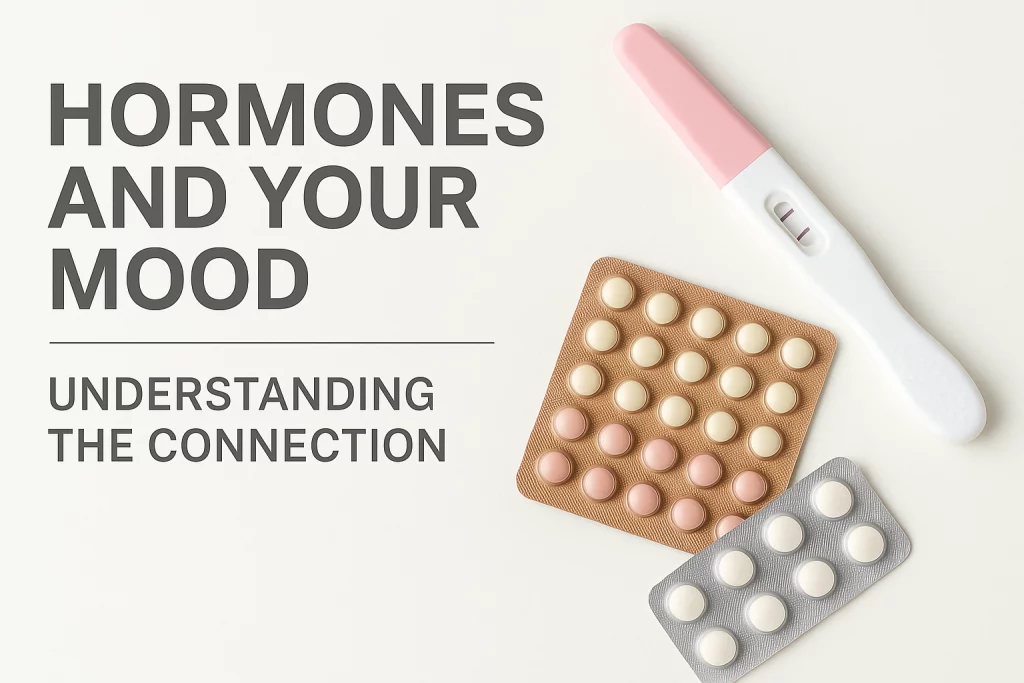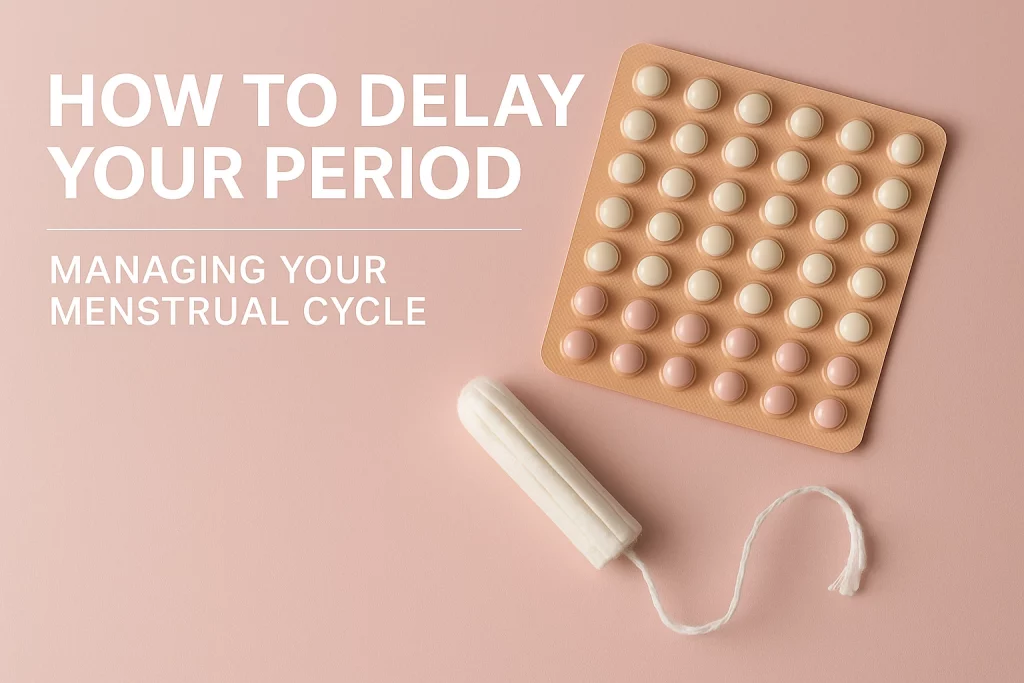Hormones affect nearly every part of a woman’s health, from mood and energy levels to skin, sleep, and menstrual cycles. It’s completely normal to notice changes before and during your period – but how much is too much? And when should you speak to someone?
This guide will help you understand the role of hormones in your menstrual health, what symptoms are expected, and which ones could signal something more serious.
Understanding Hormones and the Menstrual Cycle
Each month, a carefully balanced shift in hormones controls your cycle.
- Oestrogen rises in the first half of the cycle, boosting energy and mood
- Progesterone increases after ovulation, helping the body prepare for a possible pregnancy
- If pregnancy doesn’t happen, both hormones drop, triggering your period
These hormonal changes can impact how you feel physically and emotionally.
Common Hormonal Symptoms Before and During Your Period
Most people experience at least one of these:
- Bloating
- Breast tenderness
- Mood swings or irritability
- Mild cramps or back pain
- Headaches
- Fatigue
These are usually part of premenstrual syndrome (PMS) and tend to improve after your period starts.
When Are Hormonal Symptoms Not Normal?
If symptoms become severe or start affecting your daily life, it may not be “just PMS.”
Conditions like PMDD (Premenstrual Dysphoric Disorder), endometriosis, or hormonal imbalances like PCOS (Polycystic Ovary Syndrome) can cause:
- Debilitating mood changes (anger, anxiety, depression)
- Extreme fatigue
- Heavy, irregular, or missed periods
- Intense cramping that doesn’t respond to pain relief
- Ongoing acne or hair thinning
Period Delay and Hormone Control Options
There are safe and medically approved ways to manage or delay your period if it’s due at an inconvenient time, like during holidays or major events.
Period delay treatments work by maintaining higher progesterone levels temporarily, which keeps the uterine lining stable and delays bleeding. They’re suitable for short-term use in healthy individuals.
You can check if period delay is right for you with a quick online assessment. Get started here.
How to Support Your Hormonal Health
- Eat a balanced diet rich in healthy fats, protein, and complex carbs
- Limit caffeine and alcohol, which can impact hormone regulation
- Prioritise sleep and regular physical activity
- Manage stress, which plays a big role in hormone balance
If your symptoms aren’t improving or are affecting your quality of life, don’t hesitate to speak with a healthcare professional.
Support is available if your periods are irregular, severely painful, or you’d like to delay them for travel or personal reasons. Speak to a clinician today and explore safe, effective options.
Final Thoughts
Hormonal changes are part of every cycle, but you know your body best. If something feels off, painful, or unmanageable, it’s worth looking into.
Understanding what’s normal, supporting your hormonal health, and getting medical advice when needed can help you feel more in control of your cycle.


